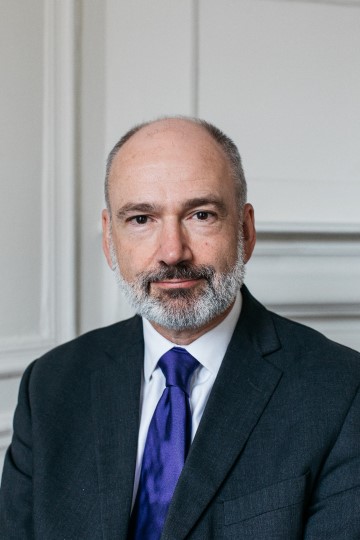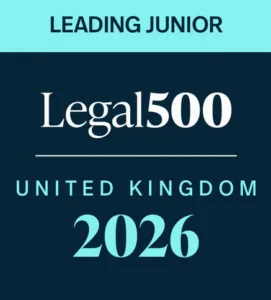A Borough Council v B [2024]
These were care Proceedings where David represented the children. The LA plan was to move the children to their father’s care under a child arrangements order. The legal test the Court should apply was disputed. The Mother argued that, as these were public law proceedings, the public law test for a removal under an ICO should apply, in other words that the children’s immediate physical, psychological or emotional safety required their removal from the Mother’s care. It was argued by David on behalf of the children that the private law test for an interim switch of “lives with” arrangements applied as this was a private law order moving children from one parent to another. This was a less sharp interference with family life than placing children in foster care and was more likely to be a proportionate response to the concerns. This required simply application of the welfare test and “compelling reasons” for such a switch at an interim stage. The Court adopted the latter private law test and made the child arrangements order for the children to live with the Father at this interim stage.
Re AW (Children) EWHC 2021-2023
DHCJ Richard Harrison KC. 3 children, 17, 11 and 10. Parents convicted of ABH and kidnapping from foster care re the eldest child. David represented the Father. The issues were about whether the younger children could safely be cared for in the local Romany community and within the family network, when unable to return to the care of the parents. LA applied under s34(4) CA 1989 to stop all direct contact to the Father, as it was alleged the Father had secretly passed a phone number to the children at contact in the prison, to arrange to be “collected” by his associate. An order was made, but David argued successfully it could be time limited and the order was made for only 2 years.
A County Council v W [2023]
High Court case where subject girl, a Hong Kong citizen, was taken into care after the Mother was filmed in England severely beating her. The Father and the Paternal Aunt wanted to care for her in HK. The child did not want to go back to HK as she feared that neither the Father nor the Aunt, otherwise able carers, would protect her from the Mother. Both Father and Aunt had to come here to give sworn evidence as it was decided remote sworn evidence from HK needed permission from the Chinese government. While wardship to the HK High Court might give some protection, it was held the child was being reasonable to fear for her safety and in those circumstances it would be too emotionally harmful to send her back to HK.
London Borough of Barking and Dagenham v A [2023]
Care Proceedings, whereby the LA was seeking care and placement orders re a boy of 14 months. The Mother and Father had longstanding drug and alcohol addictions they had failed to tackle and a domestically abusive relationship, whereby the Father, according to the Mother, was coercively controlling and at various times, had strangled, punched, and stamped on the Mother, slammed her face into objects, broken her collar bone and set her home on fire. The Father had various criminal matters outstanding, including possession with intent to supply a large quantity of class A drugs. The domestic violence was proved. The issue arose as to whether a condition could be placed on any adoption that there must be face to face contact with siblings from the birth family. This was very important to the Mother. It was held that while the care and placement orders should be made, the care plan was approved only on condition, as argued by David, that the pool of adopters was restricted to those who would facilitate sibling face to face contact, unless and until it could be demonstrated, after a search of 6 months, that no such adopters could be found.
Re: L (Fact-Finding Hearing: Fairness) [2022] EWCA Civ 169; [2022] 2 FLR 1245 A judge is at liberty to depart from the Local Authority threshold document in making findings of fact against a parent, including a finding of a pattern of coercive and controlling behaviour, so long as a parent has a reasonable opportunity to put his case on any additional matters and there is procedural fairness. The further the findings of fact deviate from the threshold document the more caution must be shown in ensuring fairness to the parent.
KN (A Child) (Art 15 Transfer) [2020] EWCA Civ 1002; [2021] 1 FLR 617 David’s successful appeal against a decision, of the Court’s own motion, by HHJ Wright at the CFC to transfer care proceedings to France under Brussels IIA, Article 15. He represented the Mother, who opposed the transfer. The Court of Appeal agreed with David, for a range of reasons, that the French Court was not better placed to hear the case and the transfer would not be in the best interests of the 13 year old boy, who was the subject of the proceedings. The Court also allowed the appeal on the basis that the Court below had not given sufficient notice to the parties it was contemplating the transfer, as required by FPR 12.64. In addition, the Court of Appeal gave important guidance on the proper use of Articles 55 and 56 of Brussels IIA.
N (A Local Authority) v RK & Others [2020] EWFC 25 In a ‘remote’ final hearing of care proceedings, Mostyn J approved the Local Authority’s care plan for the child, EK, to be made subject to Care and Placement Orders. David Sharp represented the child, through his Children’s Guardian. For Eleanor Clotworthy‘s article on the procedural issues raised by conducting the hearing remotely by Skype for Business, published online by “It’s a Lawyer’s Life”, please click here
This was the first full trial of care proceedings by Skype.
Hertfordshire County Council v AK and another [2020] EWHC 139 (Fam) Deprivation of liberty orders should only be made if a child’s current circumstances justify the making of one. They should not be made on a contingent or anticipatory basis for such unspecified time when a child’s circumstances deteriorate.
Re B (Leave to Defend Adoption) [2015] David represented the prospective adopters in the sequel to the well known Supreme Court case, in which adoption was described as “the last resort” to be confined to cases where “nothing else will do”.
In the Matter of K & H (Children) [2006] EWCA Civ 1898 Children are not to be removed from parents under an interim care order unless it was in the interests of their safety and a high standard had to be met and applied
W v Hertfordshire County Council [1993] 1 FLR 118 Care — Care proceedings — Children Act 1989 — Local authority applying for interim care orders for three children — Justices declining to make orders in respect of two children — Justices announcing decision without stating findings of fact or reasons — Whether decision vitiated — Whether matter should be remitted for rehearing — Family Proceedings Courts (Children Act 1989) rules 1991, r 21(5),(6)



